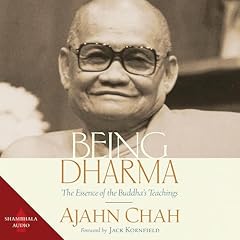
The Buddha's Teachings as Philosophy
No se pudo agregar al carrito
Add to Cart failed.
Error al Agregar a Lista de Deseos.
Error al eliminar de la lista de deseos.
Error al añadir a tu biblioteca
Error al seguir el podcast
Error al dejar de seguir el podcast
 Exclusivo para miembros Prime: ¿Nuevo en Audible? Obtén 2 audiolibros gratis con tu prueba.
Exclusivo para miembros Prime: ¿Nuevo en Audible? Obtén 2 audiolibros gratis con tu prueba.Compra ahora por $18.18
-
Narrado por:
-
Andrew Wincott
-
De:
-
Mark Siderits
Mark Siderits's The Buddha's Teachings As Philosophy explores three different systems of thought that arose from core claims of the Buddha. By detailing and critically examining key arguments made by the Buddha and developed by later Buddhist philosophers, Siderits investigates the Buddha's teachings as philosophy: a set of claims—in this case, claims about the nature of the world and our place in it—supported by rational argumentation and, here, developed with a variety of systematic results. The Buddha's Teachings As Philosophy will be especially useful to students of philosophy, religious studies, and comparative religion—to anyone, in fact, encountering Buddhist philosophy for the first time. Among the issues discussed by Siderits are those regarded as particularly challenging in the 21st century, such as karma and rebirth and the nature of nirvana.
PLEASE NOTE: When you purchase this title, the accompanying PDF will be available in your Audible Library along with the audio.
©2022 Hackett Publishing Company, Inc (P)2024 W. F. Howes LtdLos oyentes también disfrutaron:




















Las personas que vieron esto también vieron:










Lots of fascinating insight
Se ha producido un error. Vuelve a intentarlo dentro de unos minutos.
Best introduction to Buddhist philosophy
Se ha producido un error. Vuelve a intentarlo dentro de unos minutos.


